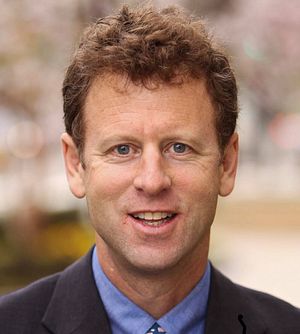The Diplomat’s Franz-Stefan Gady speaks with leading defense expert Michael E. O’Hanlon about his latest book The Senkaku Paradox: Risking Great Power War Over Small Stakes, in which the author examines how a local crisis, like a Chinese seizure of the uninhabited Senkaku/Diaoyu islands, currently occupied and administered by Japan, could trigger a full-scale great power war. To mitigate the risk of local crises and avoid bloodshed, O’Hanlon recommends a new form of asymmetric defense and integrated deterrence to U.S. policy makers.
The Diplomat: In your book you note that local conflicts currently pose the greatest risk to world peace. Why?
Michael O’Hanlon: Because neither China nor Russia would do something so brazen and bold as to almost guarantee a U.S. or allied response. But they’d love to take steps that would weaken or undercut our alliances and the global order.
What exactly is the Senkaku paradox?
By following through the logic of our alliance commitments, we could wind up having to threaten World War III over a bunch of rocks that we don’t even have a strong national position concerning the proper ownership. Or, in the Baltics, we could have to threaten massive retaliation over one small occupied town.
Do you see a greater risk of great power conflict now than ten years ago?
Yes, because China is stronger and Russia is angrier.
Can you briefly outline the history of the Senkaku/Diaoyu Islands dispute between China and Japan? To what degree is the United States involved in this bilateral Sino-Japanese maritime dispute?
They both think they got there first, centuries ago. We don’t know and don’t much care. But we left them in Japanese hands after World War II and then decided the U.S.-Japan Mutual Security Treaty covered them. This seems oxymoronic to me, or at least dangerous and prone for misperception and deterrence failure.
You mention that Donald Trump’s reluctant support for U.S. alliances may have weakened U.S. deterrence posture across the globe, although U.S. alliance commitments remain formally in place and U.S. troops remain forward deployed around the world including Korea and Japan. To what degree has Trump’s ascension to the presidency increased or decreased the chance of a small conflict escalating militarily into a bigger one?
Somewhat, but this is not mostly about Trump. The paradox predated him and will outlast him.
The risk of great power war is intrinsically linked to U.S. global defense commitments. Could one make the argument that without the U.S. alliance system, there would be no risk of a local conflict turning into a global war? For example, had the rigid European alliance system not existed in 1914, the assassination of an Austrian Archduke would likely not have plunged the entire world into war. As a corollary, wouldn’t U.S. policy makers be better served by reexamining what defense commitments are really in the U.S. national interest around the world?
I think Japan and China, or Russia and Poland, could find plenty of ways to fight without our role. In fact, I think they probably would have by now. And Germany can’t defend the Baltics, even with UK and French help!
In the book you propose a strategy of asymmetric defense—for purposes of deterrence and, should deterrence fail, for purposes of response—that has economic and military components. This new strategy appears to somewhat resemble the U.S. containment strategy during Cold War years. Could you explain how this would look like in real life?
Yes, the key is to be prepared to use economic warfare over the long haul, and improve our resilience, and use military force only in support of that strategy, preferably without firing a shot.
Thank you.

































